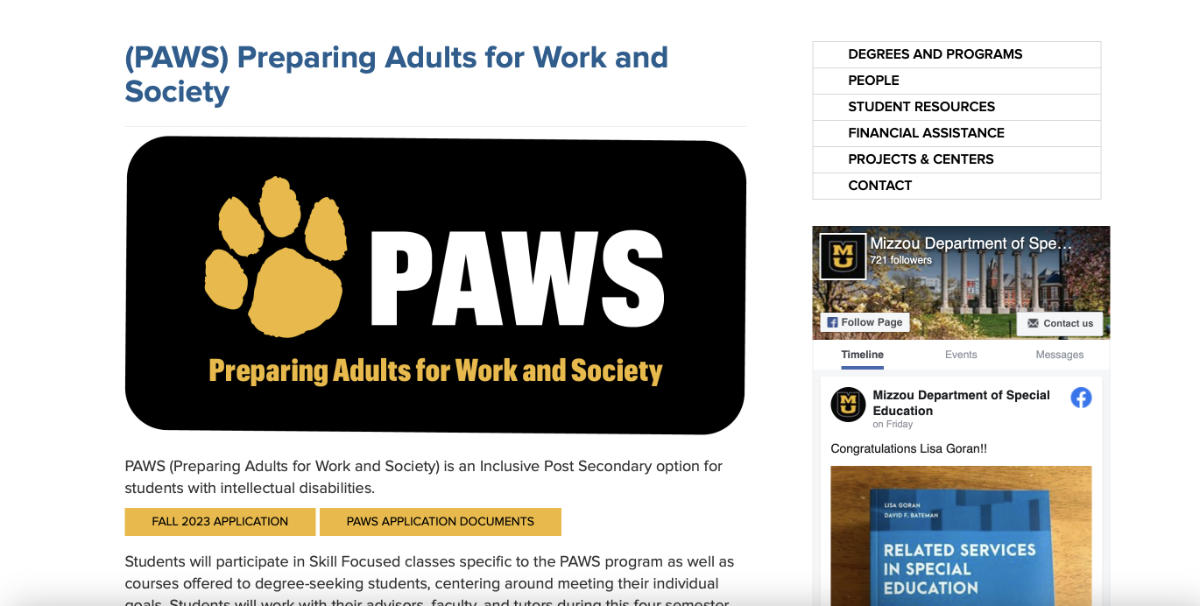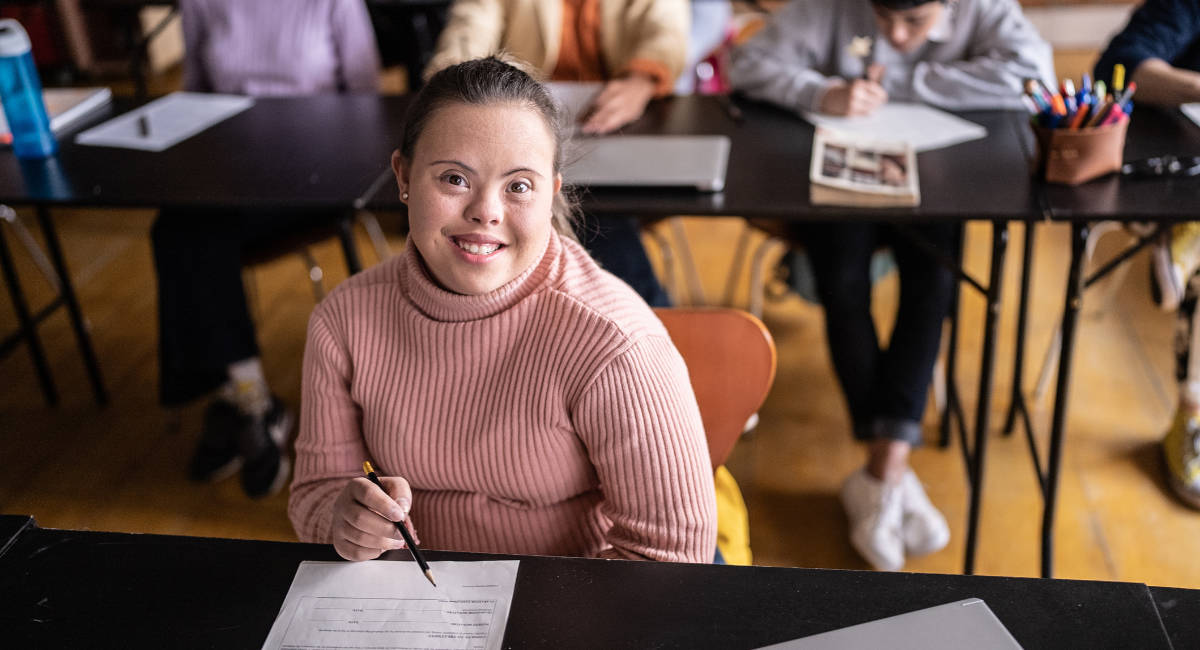The University of Missouri (Mizzou) College of Education and Human Development recently announced the upcoming launch of PAWS — Preparing Adults for Work and Society, “a residential program for post-secondary students with intellectual and developmental disabilities.”
According to a story in the summer 2023 issue of Embodied magazine, PAWS was the brainchild of Mizzou spokesman Chrisitan Basi, whose 16-year-old daughter Julianna has Down syndrome. Back in 2018, after Julianna’s cheer squad performed on the Mizzou campus, Basi approached the special education department chair and asked, “Would you be interested in starting a college program for students with intellectual disabilities?” He was met with an enthusiastic “yes!” Five years later, the PAWS program, which is patterned after University of Missouri-St. Louis’ Succeed Program, is ready for primetime.

According to the PAWS application, “PAWS Students will take a combination of PAWS Courses exploring areas of independent living, academic and work success, and social and community connections, as well as MU courses connected to their individualized goals. Through the exploration of their skills and interests, PAWS students will have the option to seek out volunteer and paid work.” The program will offer a blend of for-credit college courses and life skills courses, with a heavier emphasis placed on learning the life skills necessary for independent living and gainful employment.
The PAWS program will begin during the fall 2023 semester. The initial capacity will be four students, and each student will be enrolled in the program for two years. PAWS director Maggie Center commented to The College Fix, “Feedback from the Mizzou community and from interested students/families has been that people are excited that this program is getting started.”
The PAWS program may be financially out of reach for some students with intellectual disabilities and their families. Participants will pay an additional $7000 for the program over and above an estimated $29,066 for traditional undergraduate tuition, room and board, and related fees.
Center confirmed plans for PAWS to become an accredited comprehensive transition and postsecondary program (CTP), which the U.S. Department of Education regulates and defines as, “a degree, certificate, or nondegree program that is offered by a college or career school and approved by the U.S. Department of Education.”
According to the Department of Education, CTP programs are intended to “to support students with intellectual disabilities who want to continue academic, career, and independent living instruction to prepare for gainful employment.” At present, 40 states have certified CTP programs. A complete list is here.
Center spoke to the need to integrate adults with Down syndrome or other intellectual or developmental disabilities into the college campus community at large. She said, “There are lots of misconceptions around disability, and it can be challenging to know what’s true or what’s not, so rather than risk offending someone, people avoid the topic.” As a result, she explained, “We unintentionally reinforce the isolation experienced by folks with disabilities by not making the space to get to know each other in ways that celebrate the whole person.” PAWS aims to change that tendency, and to prepare program participants for lifelong personal and professional success in the process.








